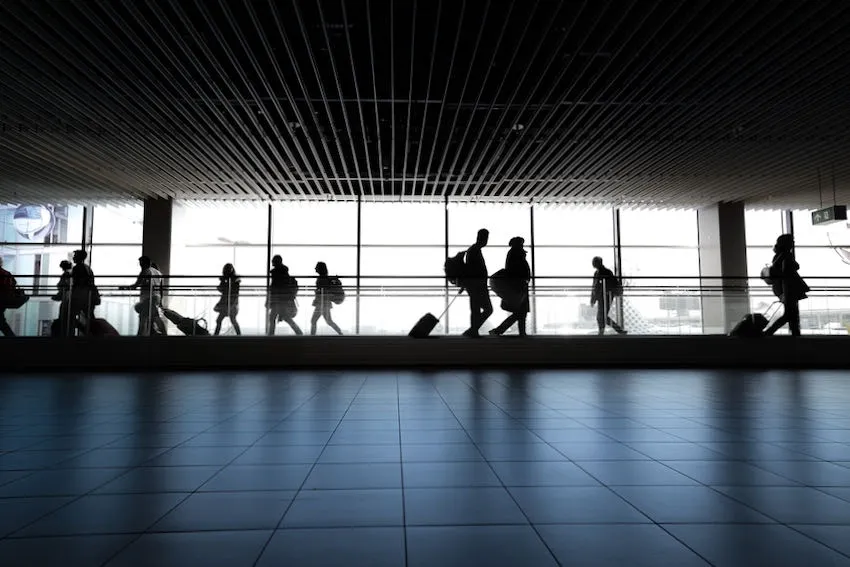“Ministers should develop proposals like a frequent flyer tax to reduce the demand for air travel, if other measures aimed at cutting aviation emissions fall short of expectations.” [UK’s Environmental Action Committee]
“If it doesn’t happen, then we haven’t done anything about aviation emissions, and global warming gets worse and worse, and more lives are ruined.” [Aviation campaigner for Possible, Rob Bryher]
.
The New Economics Foundation will be launching their latest campaign this Thursday – although their interest in pushing for A Frequent Flyer Levy goes back three years ago when they published their frequent flyer levy report.
So, why the renewed interest now?
Firstly, groups not normally associated with targeting aviation have been drawing attention to the ‘unfairness’ of airport expansion and cheap aircraft fuel. Recently, very pertinent questions have been raised: Why are farmers so angry? Why are ‘flights over food’ prioritised?. As noted by the NEF’s Alex Chapman last month, looking at flights, farmers and food, “Cork’s farmers saw it as unfair that the EU’s Green Deal meant they were asked to “take a hit” for the climate, when the airport next door was slated for a free pass to expand its capacity from 3 million passengers to 5 million.”
[And this time last year, it was announced that Bristol Airport is to expand – and that is at the same time as it was discovered that Bristol is One of England’s Most Sustainable Cities…]
Secondly, other campaign groups are focussing on the issues, with the likes of the Possible organisation [“Inspiring climate action”] also pushing for a frequent flyer levy, “the fairest way to change the UK’s flying habits at the speed required”; the US-based International Council on Clean Transportation has published a similar proposal, looking to “fair fares for the climate“.
Thirdly, campaigns to introduce such a levy are also gaining momentum in other countries, with “a leading environmental journalist and commentator” in Ireland today suggesting a frequent flyer tax could limit ‘discretionary’ flying for ‘high-earning’ Irish; last year, France banned short-haul domestic flights in favour of train travel and this week it was confirmed that, similarly, Spain plans to replace short-haul flights with trains; and the airline industry is clearly spooked, with the AirAsia sustainability chief questioning the effectiveness of frequent flyer taxes in Asia.
Lastly, though, in the UK the pressure is gathering, with news last week that the government has been slammed for ‘protecting’ frequent flyers – with the Energy Action Committee’s chair Conservative MP Jerome Mayhew saying: “Decarbonising the aviation industry has proved difficult; but it is a critical part of the UK’s pathway to net zero.” The Independent carries more on the story that the UK should impose a frequent flyer tax to curb air travel demand, MPs say:
Ministers should develop proposals like a frequent flyer tax to reduce the demand for air travel, if other measures aimed at cutting aviation emissions fall short of expectations, MPs have said. Under government plans, emissions will be reduced significantly each year by technological measures, like increasing fuel efficiency and the adoption of sustainable aviation fuels. The first review of how the Jet Zero Strategy is working to cut emissions is expected to take place in 2027.
However, the Environmental Audit Committee (EAC) has urged the Government to bring forward this review to 2025 to determine whether the sector remains on track to meet a 2050 net zero target. The group of MPs are also calling on ministers to prepare for the review’s outcome, in case it finds that the technological measures alone will not deliver the reductions predicted. “In preparation for the outcome of that review, we recommend that the government develop policy proposals on demand reduction, including consideration of greater use of digital technologies, reducing the cost of rail travel, and a frequent flyer levy, should these then be required,” the EAC said.
It comes as part of the committee’s wider call for ministers to hold the industry accountable for proposed emissions reductions, as it published the government’s response to its report on net zero aviation. In the report, the EAC says ministers should rigorously monitor the industry’s progress and reassess its approach if system efficiencies alone fail to meet the 2050 net zero trajectory.
The last word, however, goes to the business travel industry, where it asked late last year: Frequent-flyer levy: a good or bad idea for business travel?
As to how a levy would operate technically, details from proponents are thin. Aviation campaigner for Possible, Rob Bryher, tells BTN Europe that passport numbers fed by the airline to a government database could act as unique identifiers for tracking the number of flights taken and the consequent levy to be paid.
The concept does not enjoy widespread support within corporate travel. The closest BTN Europe could find to a positive was from the Danish Business Travel Association. “If done wisely and specifically earmarked for sustainability improvements, it could be okay,” says general manager Jens Søndergaard. “But if just another tax, then no. Flight charges are already in place in many countries or on the verge of being introduced and I do see these as a kind of levy on frequent flyers, as you pay on every trip you take.”
The Global Business Travel Association is more unequivocally opposed. “Carbon pricing is part of the basket of measures to be explored further to encourage more sustainable travel behaviours,” says Catherine Logan, regional senior vice president for EMEA and APAC. “GBTA, however, believes that a tax on frequent flyers is not an effective approach to decarbonise aviation. What we need is direct government action to directly promote technological innovations and incentivise decarbonisation solutions, such as sustainable aviation fuels.”Does Bryher believe the levy will eventually be introduced? “Yes I do, because if it doesn’t happen, then we haven’t done anything about aviation emissions, and global warming gets worse and worse, and more lives are ruined,” he says.
…
